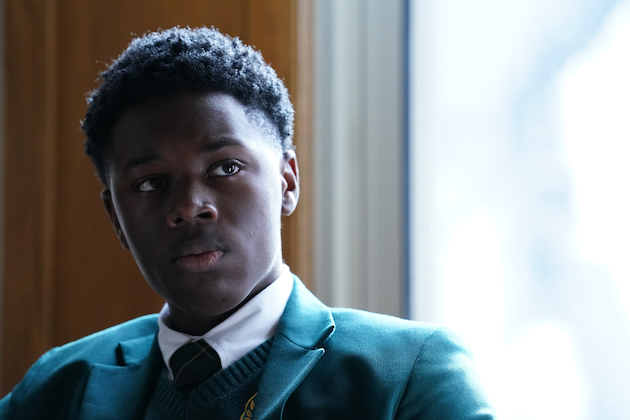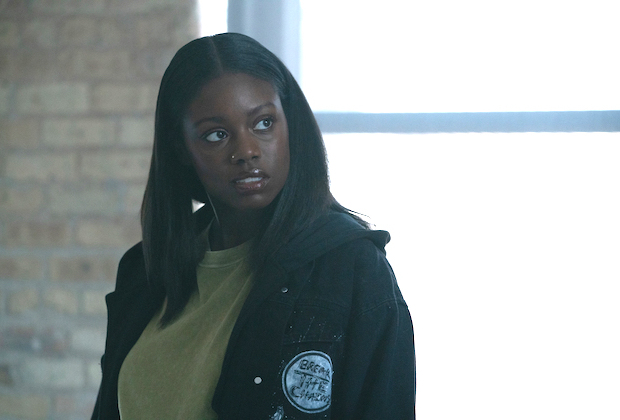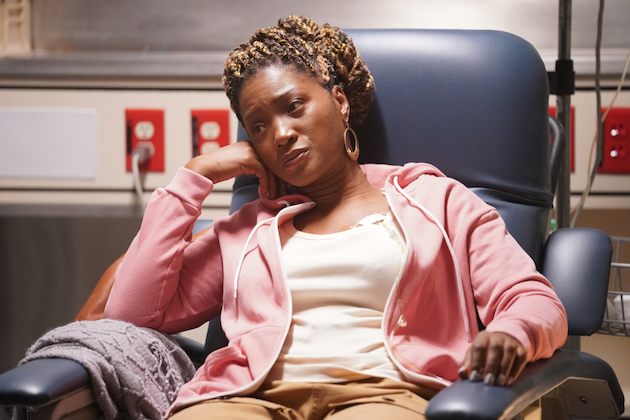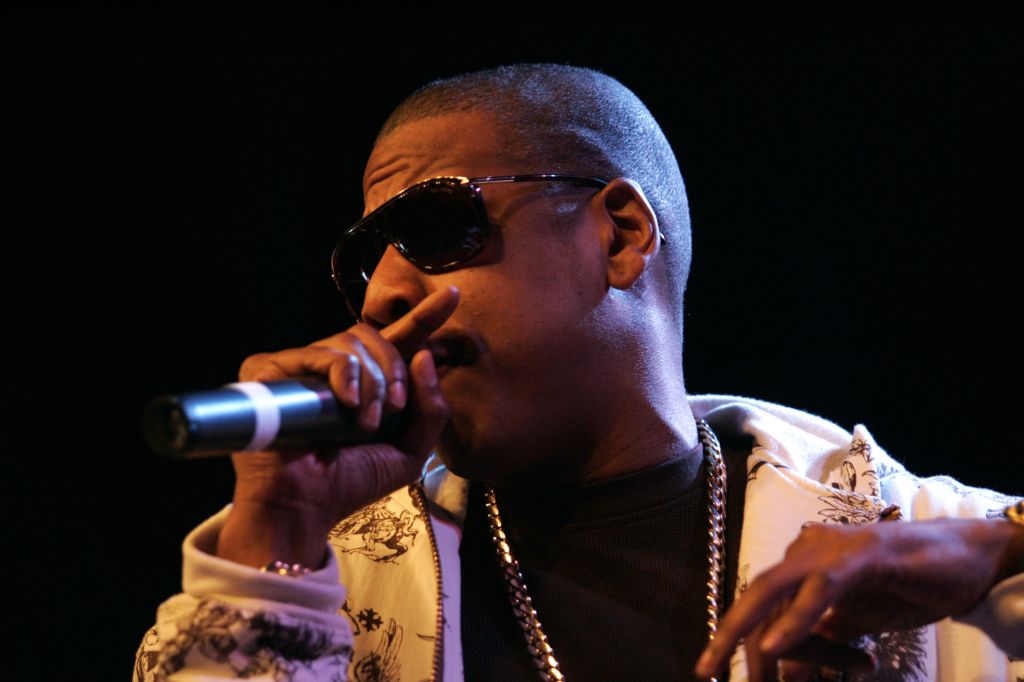
Source: Showtime / Showtime
Blackness isn’t monolithic, but Black people are often bonded through pain since they are often the only people to protect Black people from their own community. On the latest episode of The Chi, Lena Waithe’s critically-acclaimed drama explores the cycle of Black pain begetting more Black pain.
Near the beginning of the episode, Kevin (Alex Hibbert) and his two parents meet with what appears to be a school therapist to address Kevin’s recent erratic behavior, including him having a drinking problem following an inebriated incident on a school trip in an earlier episode. At one point, Kevin’s biological mother, Nina (Tyla Abercrumbie), says Kevin has got to the age where she can’t keep up with everything he does and wants a break from guiding him through his missteps. Kevin angrily retorts he wants a break as well before implying his recent behavior is caused by his parents’ overbearing supervision of him, especially after the police altercation he endured. For Kevin, it appears having his freedom jeopardized by racist police and then feeling imprisoned in his own family has him lashing out to get any sort of control over his situation, even if it means drinking and smoking to gain control over his happiness.
That is when his mother shifts the emotional weight off her shoulders and onto her son’s heart by informing him that she’s been overprotective because of Keisha’s kidnapping and rape from season 3. For Nina, she is paranoid of getting the call that one of her kids is dead, a reality that shocked Kevin in the therapy session. The Black pain his mother felt, almost losing both of her children, turned into Kevin’s own pain that he tried to handle through substance abuse.
Nina’s fear is real. For Black men between the ages of 15 to 34, murder is the leading cause of death. With there being more than 4 million Black homes without a father, Nina’s worst nightmare has been the harsh reality of too many Black mothers. The Chi gives one of the most visceral looks into the mind, and more importantly, the heart of a Black mother trying to shield her child from Black pain by immersing him in her own.
The previous episode ended with Jake (Mike Epps) speaking about why Black people say “Fuck the police” and his own encounter with police brutality on Jemma’s (Judae’a Brown) talk show broadcasted within their school. As a repercussion, the Black school principal not only suspended the talk show until the civil unrest about the police being defunded dies down, but he also implies that Black people shouldn’t have let white people convince them beating children was bad parenting. The Black principal made a comment about beating children to the Chicago mayor Otis Perry (Curtiss Cook), who retorted that by not beating children, they now can think for themselves. Thus, this Black principal responded to a student’s Black pain by trying to cause more through suppression.

Source: Showtime / Showtime
Excessive punishment for young Black kids has been a rampant problem in the Illinois schools outside of the fictionalized world of The Chi. In 2017, Black students in Illinois were six times more likely to be suspended or expelled from school compared to white students. The racial disparity had become so commonplace in the Illinois school system that by 2018, 26 school districts, including Chicago Public Schools, were flagged by the Illinois State Board of Education for disciplining Black students more than white students for three straight years. The Chi’s Black principal view of Black pain as grounds for punishment is the same reductive thinking that has real Black kids in public schools having their bad behavior criminalized with arrests and punitive action from their school to make them think their Black pain is worth empathy.
In The Chi, Jemma represents the more politically aware generation of Black students unifying to gain control over their own reality. When the Black principal suggests Jemma’s show will return once racial tensions simmer down, she staunchly responds by questioning the decision rhetorically with, “So, when racism is over, I’ll get to get my show back?” She’s the one who then takes it upon herself to galvanize students to join in a walk-out to confront the principal. Seeing these young students speak of freedom and revolution when discussing school suspensions and walking out of class is a clear reminder that Black children have been incubated in Black struggle for centuries to the point that they’re born to revolt.

Source: Showtime / Showtime
There was no more salient depiction of that fact than the viral video of seven-year-old Wynta-Amor Roger marching in a protest over the murder of George Floyd while screaming “no justice, no peace.” As with the kids of The Chi, Wynta-Amor Roger has an innate desire to fight oppression because she was more than likely born from a version of Black pain she now internalizes in her fight.
The Chi Season 4 Episode 4 Shows The Cycle Of Black Pain Begetting More Black Pain was originally published on cassiuslife.com
















